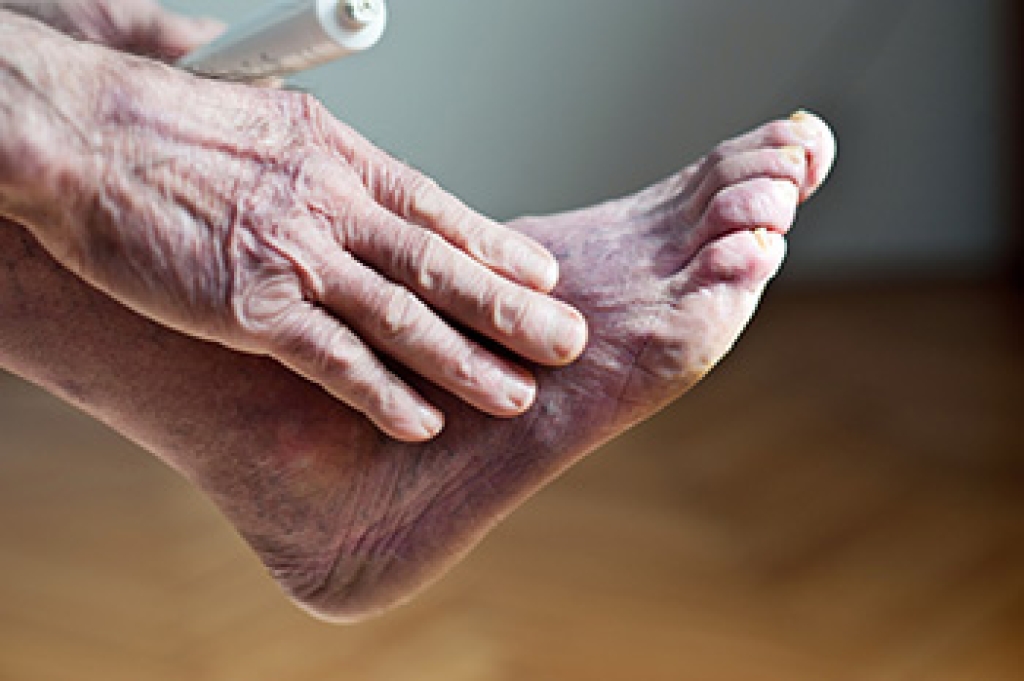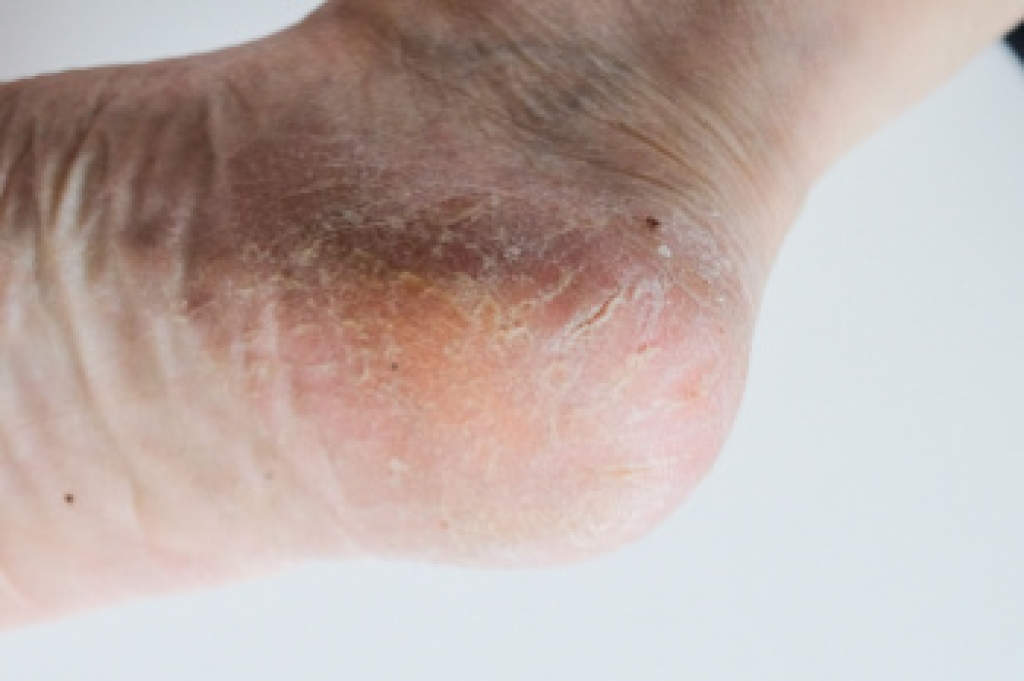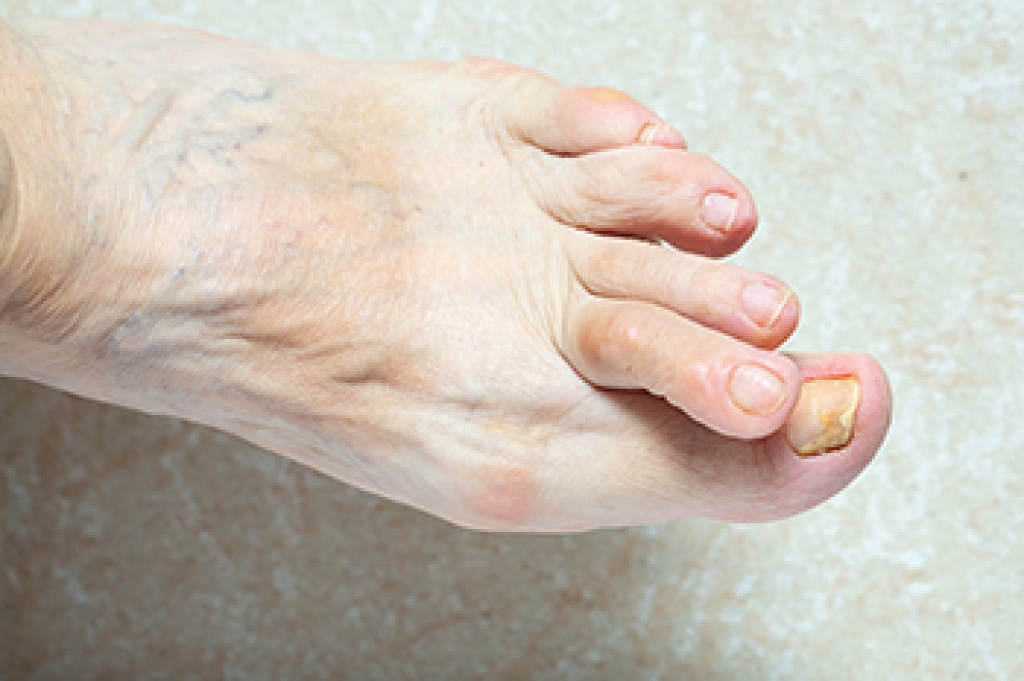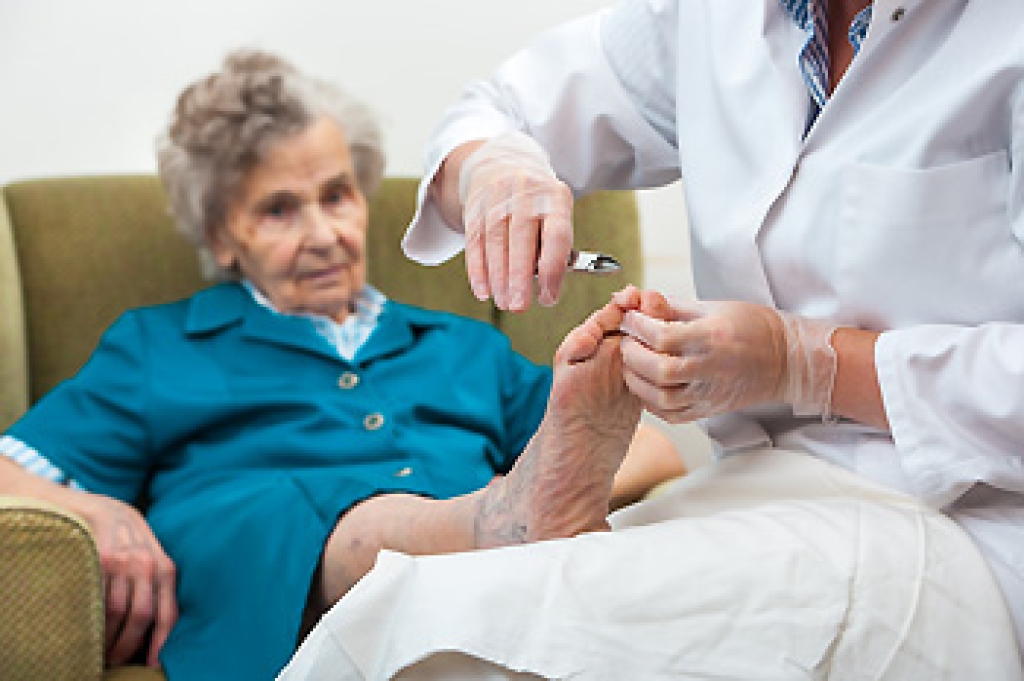Connect With Us
Blog
Blog
What Poor Circulation in the Feet Really Means

Poor circulation in the legs and feet means that blood is not flowing efficiently to the tissues that need oxygen and nutrients. In the feet, this can lead to cold skin, numbness, color changes, slow growing toenails, or wounds that take longer to heal. Reduced blood flow may result from narrowed arteries, diabetes, smoking, or prolonged pressure on the feet. Over time, poor circulation increases the risk of infection, skin breakdown, and chronic wounds. Managing the problem starts with protecting foot health. Wearing properly fitting shoes, staying active within comfort limits, and keeping feet warm. Controlling blood sugar, blood pressure, and cholesterol also plays an important role. Regular foot checks help catch changes early. When symptoms persist, professional evaluation is important to prevent complications. If foot changes, pain, or slow healing are present, it is suggested that you see a podiatrist for a proper diagnosis and appropriate treatment.
Poor circulation is a serious condition and needs immediate medical attention. If you have any concerns with poor circulation in your feet contact Jason Bell, DPM of Advantage Foot and Ankle Center . Our doctor will treat your foot and ankle needs.
Poor Circulation in the Feet
Poor blood circulation in the feet and legs is can be caused by peripheral artery disease (PAD), which is the result of a buildup of plaque in the arteries.
Plaque buildup or atherosclerosis results from excess calcium and cholesterol in the bloodstream. This can restrict the amount of blood which can flow through the arteries. Poor blood circulation in the feet and legs are sometimes caused by inflammation in the blood vessels, known as vasculitis.
Causes
Lack of oxygen and oxygen from poor blood circulation restricts muscle growth and development. It can also cause:
- Muscle pain, stiffness, or weakness
- Numbness or cramping in the legs
- Skin discoloration
- Slower nail & hair growth
- Erectile dysfunction
Those who have diabetes or smoke are at greatest risk for poor circulation, as are those who are over 50. If you have poor circulation in the feet and legs it may be caused by PAD and is important to make changes to your lifestyle in order to reduce risk of getting a heart attack or stroke. Exercise and maintaining a healthy lifestyle will dramatically improve conditions.
As always, see a podiatrist as he or she will assist in finding a regimen that suits you. A podiatrist can also prescribe you any needed medication.
If you have any questions, please feel free to contact our office located in Newark, DE . We offer the newest diagnostic and treatment technologies for all your foot care needs.
Causes of Cracked Heels

Cracked heels are a common foot condition marked by dry, thickened skin that splits along the edges of the heel. They often develop from a natural loss of skin elasticity with age, making the heels less able to stretch under pressure. Long showers, harsh soaps, and frequently walking barefoot can strip moisture from the skin and worsen dryness. Additional risk factors include prolonged standing, obesity, wearing open-backed shoes, and certain skin conditions. When left untreated, cracked heels may become painful or lead to infection. A podiatrist can evaluate heel health, remove hardened skin safely, and recommend medical grade moisturizers or protective treatments. If this applies to you, it is suggested that you promptly consult a podiatrist who can offer effective relief and treatment solutions, which may include prescribed medication.
If the skin on your feet starts to crack, you may want to see a podiatrist to find treatment. If you have any concerns, contact Jason Bell, DPM from Advantage Foot and Ankle Center . Our doctor can provide the care you need to keep you pain-free and on your feet.
Cracked Heels
It is important to moisturize your cracked heels in order to prevent pain, bleeding, and infection. The reason cracked heels form is because the skin on the foot is too dry to support the immense pressure placed on them. When the foot expands, the dry skin on the foot begins to split.
Ways to Help Heal Them
- Invest in a good foot cream
- Try Using Petroleum Jelly
- Ease up on Soaps
- Drink Plenty of Water
Ways to Prevent Cracked Heels
- Moisturize After Showering
- Skip a Shower
- Keep Shower Water Lukewarm
- Don’t Scrub Your Feet
If you are unsure how to proceed in treating cracked heels, seek guidance from a podiatrist. Your doctor will help you with any questions or information you may need.
If you have any questions, please feel free to contact our office located in Newark, DE . We offer the newest diagnostic and treatment technologies for all your foot care needs.
Comparing Minimally Invasive and Traditional Hammertoe Surgery

Hammertoe correction can be performed using either smaller incision techniques or a more traditional open approach. Minimally invasive procedures use very small openings and specialized instruments to realign the toe. This approach often results in less disruption to surrounding tissue, smaller scars, and a potentially faster return to regular footwear. Swelling and postoperative discomfort may also be reduced for some patients. Open hammertoe correction involves a larger incision that allows direct visualization of bones, tendons, and joints. This method may be preferred for severe deformities or complex cases where greater correction is needed. Both techniques aim to straighten the toe, reduce pressure, and improve comfort. The choice depends on toe stiffness, overall foot structure, health status, and activity level. Recovery plans differ based on the method used. If hammertoe pain or deformity interferes with your daily life, it is suggested that you see a podiatrist to discuss appropriate treatment options.
Hammertoe
Hammertoes can be a painful condition to live with. For more information, contact Jason Bell, DPM from Advantage Foot and Ankle Center . Our doctor will answer any of your foot- and ankle-related questions.
Hammertoe is a foot deformity that affects the joints of the second, third, fourth, or fifth toes of your feet. It is a painful foot condition in which these toes curl and arch up, which can often lead to pain when wearing footwear.
Symptoms
- Pain in the affected toes
- Development of corns or calluses due to friction
- Inflammation
- Redness
- Contracture of the toes
Causes
Genetics – People who are genetically predisposed to hammertoe are often more susceptible
Arthritis – Because arthritis affects the joints in your toes, further deformities stemming from arthritis can occur
Trauma – Direct trauma to the toes could potentially lead to hammertoe
Ill-fitting shoes – Undue pressure on the front of the toes from ill-fitting shoes can potentially lead to the development of hammertoe
Treatment
Orthotics – Custom made inserts can be used to help relieve pressure placed on the toes and therefore relieve some of the pain associated with it
Medications – Oral medications such as anti-inflammatories or NSAIDs could be used to treat the pain and inflammation hammertoes causes. Injections of corticosteroids are also sometimes used
Surgery – In more severe cases where the hammertoes have become more rigid, foot surgery is a potential option
If you have any questions, please feel free to contact our office located in Newark, DE . We offer the newest diagnostic and treatment technologies for all your foot care needs.
Common Foot Problems in Older Adults

As people age, gradual changes in foot structure can lead to discomfort and reduced mobility in the feet and ankles. Loss of natural padding on the soles, joint stiffness, reduced muscle strength, and flattening of the arches can place added stress on bones and soft tissue. Problems that develop over time include arthritis in the many joints of the feet, bunions that shift toe alignment, and hammertoes. Corns, calluses, fungal nail problems, heel pain, and acquired flatfoot caused by weakened tendons may also arise. These issues can affect balance and walking patterns, increasing strain on the feet during daily activity as well as the risk of falls. A podiatrist can evaluate changes in alignment, joint motion, skin health, and circulation. This foot doctor may then recommend appropriate treatment or surgery, when needed, to address long-term problems and protect foot function. If you are an older adult experiencing foot problems, it is suggested that you make an appointment with a podiatrist for a diagnosis and options for advanced treatment.
Proper foot care is something many older adults forget to consider. If you have any concerns about your feet and ankles, contact Jason Bell, DPM from Advantage Foot and Ankle Center . Our doctor can provide the care you need to keep you pain-free and on your feet.
The Elderly and Their Feet
As we age we start to notice many changes in our body, but the elder population may not notice them right away. Medical conditions may prevent the elderly to take notice of their foot health right away. Poor vision is a lead contributor to not taking action for the elderly.
Common Conditions
- Neuropathy – can reduce feeling in the feet and can hide many life-threatening medical conditions.
- Reduced flexibility – prevents the ability of proper toenail trimming, and foot cleaning. If left untreated, it may lead to further medical issues.
- Foot sores – amongst the older population can be serious before they are discovered. Some of the problematic conditions they may face are:
- Gouging toenails affecting nearby toe
- Shoes that don’t fit properly
- Pressure sores
- Loss of circulation in legs & feet
- Edema & swelling of feet and ankles
Susceptible Infections
Diabetes and poor circulation can cause general loss of sensitivity over the years, turning a simple cut into a serious issue.
If you have any questions, please feel free to contact our office located in Newark, DE . We offer the newest diagnostic and treatment technologies for all your foot care needs.
Blog Archives
- 2026
- 2025
- 2024
- 2023

